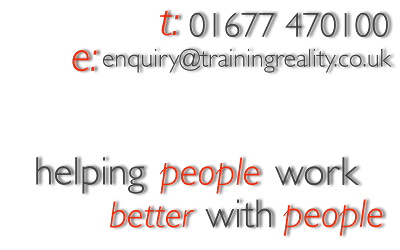


Please press (at least!) one of these.
It costs you nothing, and (possibly) helps us spread the word!
Why "Win-Win" doesn't win with me
Thursday, 17 February 2011
"Win-win". Or, for the even trendier (worse) out there, "win-win-win". It's a real struggle for me to be even remotely positive about this cliché, but I'm going to try...
"Win-win" generally applies to you (or your organisation) winning - being pleased with a result - and your client or customer winning - again, being pleased with the end result. It's the happy-clappy antidote to the nasty old capitalist free market win-lose game that dreadful people played in the 1980's: companies screwing their customers, customers screwing their suppliers; anything went as long as we got the biggest slice of the pie.
"Win-win-win" usually adds "stakeholders" into the equation, but that's so annoying it must be a subject for a future article on its own.
Then, a small but brilliant cadre of gurus (along with anyone with any common sense or anyone who had ever worked in the real world, so not many people really) saw that there was another way, and that it was beautiful. Why should we not try to reach an arrangement where both "sides" are happy with the outcome? That way, we might be able to do business with them more than once! Superb!
Obviously, there is not a lot wrong with the underlying idea here; the problem, as usual, is just how glibly the phrase is used, and how little real understanding exists when people talk about other groups or organisations "winning" alongside them.
There are two great advantages to ensuring that you take other people's interests into account when making decisions:
Relationship longevity
As a child, growing up with my younger sister, we had a very simple rule enforced upon us about how food was shared. One person cut the food into portions, and the other got to select which portion they ate. Very quickly - we were smart children! - we worked out that a 50/50 split was the only way to go (unless there were differences in who liked what, or earlier/later negotiations coming into play, but that simply complicates the matter). If one of us both cut and chose, we might have a "win-lose", but it would only last until the roles were reversed...and then...
As grown-ups, I hope we really don't need those rules any more. If we respect our customers and suppliers, and ensure that we don't screw them when we work with them, we'll have a much longer relationship, which can lead to wonderful things.
Two heads are better than one
By developing these long-term relationships with our customers and suppliers, we can also improve the future ("grow the pie", to use another all-prevalent cliché) for both of us. Our customers can tell us what they like and we can provide it for them; our suppliers can learn what we need, and provide it for us. Not only does "win-win" mean that we are both happy with an individual transaction: it means that we will continue to do business, and do more and better business as the relationship develops.
--
To raise "win-win" from the realms of cheesy cliché into something more meaningful, we need to really mean it. We need to have an inbuilt understanding that
- our relationships are going to be long-term;
- that we operate in a way that is suitable for us both;
- that there is no significant power imbalance between us; and
- we must invest time and effort in building those relationships.
Still, I'd prefer it if everyone would just pack in using this phrase completely and find better ways of explaining what they're actually trying to do!
Please press (at least!) one of these.
It costs you nothing, and (possibly) helps us spread the word!
It costs you nothing, and (possibly) helps us spread the word!
